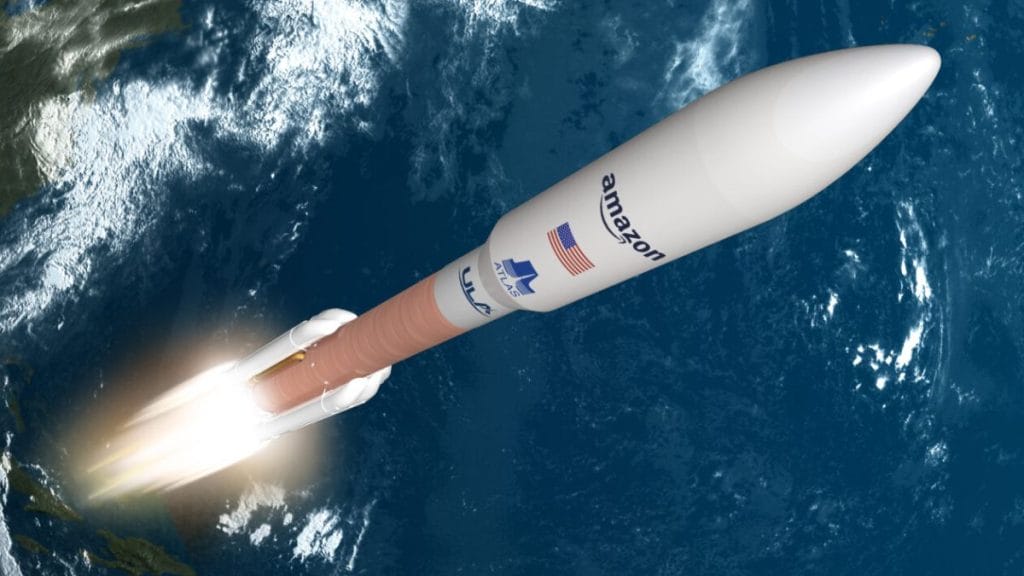New Delhi: In a move that pits the tech corporation against SpaceX and its Starlink system, Amazon has formally entered the race to develop vast constellations of satellites that can cover the whole planet in internet coverage.
This Friday, two Amazon satellites were launched to compete with Elon Musk’s Starlink, the beginning of a commercial project called Project Kuiper.
A trio of heavy-lift rockets, including ULA’s Vulcan Centaur, France’s Arianespace’s Ariane 6, and New Glenn, which is being developed by Jeff Bezos’ aerospace business Blue Origin, will carry the majority of the Project Kuiper spacecraft into low Earth orbit (LEO). More than 3,200 spacecraft are to be launched as part of Project Kuiper over the following six years, with half of them to be put into orbit by July 2026 to meet a legal requirement.
The launch of KuiperSat-1 and KuiperSat-2 was supposed to occur this spring at the Vulcan Centaur’s premiere, but it kept being postponed. As a result, Amazon opted to switch ULA launchers in August.
According to the Washington Post, Amazon has promised to invest $10 billion in Project Kuiper, which intends to establish itself in a lucrative satellite internet market with an estimated 4 billion people who lack access to the internet.
The initiative may eventually compete with SpaceX’s Starlink Internet satellites, which have a significant head start with more than 5,000 satellites circling the Earth and serving more than 1 million customers currently.
The two satellites will orbit 311 miles above Earth’s surface for a series of tests after being launched on Friday by an Atlas V rocket from Cape Canaveral Space Force Station in Florida.
Before Blue Origin, Jeff Bezos’ aerospace business was able to send a rocket into orbit, Friday marked “Amazon’s first time putting satellites into space,” according to Rajeev Badyal, Project Kuiper’s vice president of technology.
To augment the scheduled satellite launches for Project Kuiper, Amazon made the largest-ever commercial purchase of 83 rocket launches. Arianespace of France and United Launch Alliance of the United States provided the remaining launches, leaving Blue Origin with 27 missions.
According to the New York Times, representatives from the launch vendors anticipate meeting Kuiper’s launch dates. According to Reuters, Amazon plans to use Kuiper to offer satellite internet to both individuals and companies, and the company will create consumer terminals for $400 each. The programme will need some time to catch up to SpaceX’s Starlink, which offers consumer terminals for $599.





